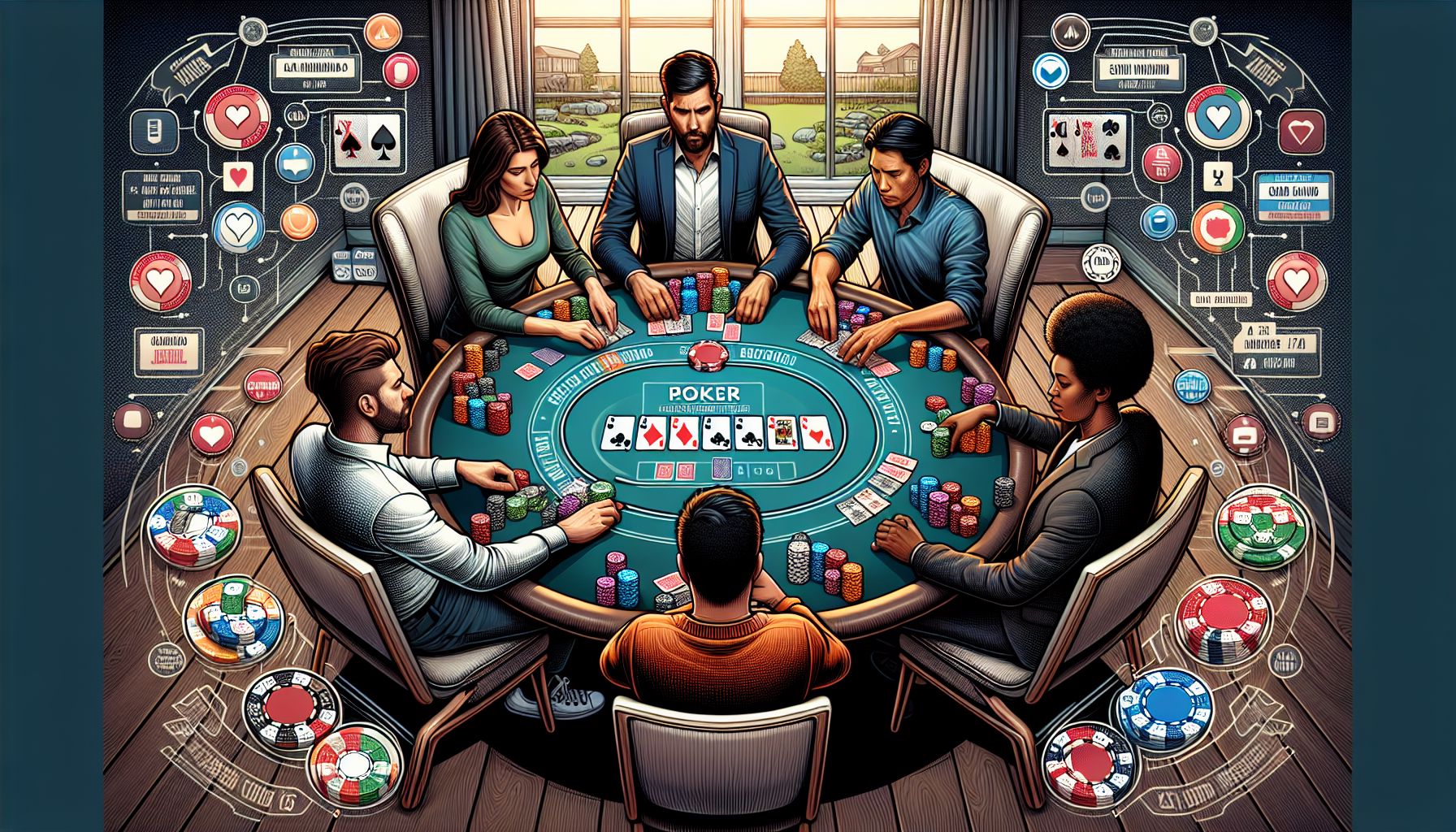In the exciting world of poker, thousands of players gather in physical and digital rooms to prove their skill, patience, Tips for Competitive Play calculation ability, and their personality. Poker tournaments, especially Texas Hold’em, are fast-paced contests of cerebral athleticism, where players can be provoked into losing billions or secure an overnight fortune. This blog post will explore what poker tournaments are, how they work, and provide essential tips that any poker enthusiast should implement to enhance their competitive play.
Introduction
Before we delve into strategies and tips on becoming a formidable poker player, it’s important to understand what a poker tournament entails. Unlike cash games where players can join and leave as they please, a poker tournament is a competition between a fixed number of players who play until one person has all their chips. In this format, each player begins with an equal number of chips, and the goal is to accumulate all of them.
Poker tournaments demand a different set of skills compared to cash games. It requires a deeper understanding of game theory, pot odds, and careful management of one’s chip stack. Understanding these aspects can lead to consistent success.
Understanding Poker Tournaments Structure
Poker tournaments can vary greatly, but the majority follow a similar structure. There’s usually an entry fee, a certain number of starting chips, and structured blinds/antes that increase at regular intervals. As players are busted, the remaining players are distributed among the tables to keep them full or close to full. This process continues until one player has all the chips and is deemed the tournament champion.
How and when to adjust strategic gameplay throughout a poker tournament largely depends on two factors: stack sizes and blind structures. As blinds increase, the gameplay will inherently change. Early on, with a deeper stack relative to the blinds, you can afford to play speculative hands and take calculated risks. However, as blinds ratchet upwards, every decision becomes critical to survival.
Tips for Competitive Play
Mastering the Art of Patience
Poker isn’t just a game of skill—it’s a test of patience. With often long periods of inactivity, it’s easy to get bored and start playing hands out of turn. Being reckless can cause your chip stack to dwindle quickly, decreasing your odds of making the money. However, remaining patient allows you to wait for favorable situations before you bet, which results in better decision-making.
Adapt to Your Opponents
In the poker world, adaptability is beneficial. Some players are aggressive, while others prefer a more conservative approach. It’s essential you adapt and alter your playing style based on your opponents. This requires careful observation and a deep understanding of how different archetypes play the game. Analyze your opponents’ behavior and adjust your playing style to exploit their weaknesses.
Pay Attention to Position
The dealer position, or being ‘on the button,’ is the most coveted in poker. It allows you to act last postflop. Acting last gives you an informational advantage—you can make your decisions based on the actions of the other players. Play as many hands as possible when you’re in position, and tighten up when you’re early or middle position.
Manage Your Bankroll
Competitive poker isn’t just about strategy or winning pots. Properly managing your bankroll is equally important. The key is to risk a small percentage of your total bankroll on any given game to sustain inevitable variances in the game.
Keep Your Emotions in Check
Poker can be an emotionally charged game. High-stakes, pressure, and poor beats can lead to emotional mistakes—these are your biggest enemy. Making decisions out of frustration or ego almost always leads to negative outcomes. Professional poker players rely on logical, calculated strategies, keeping their emotions out of the equation.
Conclusion
Excelling at poker tournaments requires a unique combination of patience, strategic understanding, risk assessment, and emotional control. It’s a game that rewards cognitive prowess and emotional resilience. Although the game has a large luck component, long term success in poker tournaments is far from a crapshoot. Consider each tip outlined in this blog post and implement them to optimize your strategy—your poker game will thank you for it.
In the words of the World Series of Poker legend Doyle Brunson, “Poker is a game of people. It’s not the hand I hold, it’s the people I play with.” The complexity of poker is what makes it a thrilling game—a sport where mental fortitude, sharp instincts, and strategic calculation reign supreme. And with these tips at your disposal, you are well-equipped to make your mark in the sphere of competitive poker.









